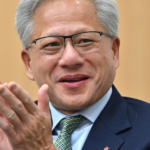A seismic generational shift is underway, and its epicenter is Generation Z. Born from 1997 onward, Gen Z is coming of age in a world where traditional milestones like landing a lifelong job, buying a house in your 20s, or chasing wealth for its own sake have become difficult, or borderline impossible, in the modern economy. Gen Z has responded pragmatically, insisting, well, maybe they don’t really want those things anyway.
Depa says the research “tells a different story” about Gen Z. “The idea that young adults are postponing adulhtood is outdated.” They’re approaching life milestones not with rebellion but with “reasoned skepticism and a global perspective.” As employees and customers, Gen Z will challenge organizations that have been wired around a different way of doing things. For business leaders, understanding this shift will be vital to attracting and retaining talent.
Where baby boomers and Gen Xers often stuck with one employer for decades, Gen Z is dismantling that concept.
“Younger generations are not merely reacting to financial constraints,” the EY Generational Dynamics team writes, but making rational and thoughtful decisions about what aligns with both their own lived experiences and the pitfalls suffered by previous generations. EY says it’s a perspective that contrasts sharply with the “pull yourself up by your bootstraps” mentality often espoused by older generations, with Gen Z finding that to be dismissive of their specific context.
Success, in Gen Z’s eyes, is an inside-out project: emotional well-being, strong relationships, and impact outrank titles and salaries. It’s no longer about ticking the boxes of homeownership, lifelong employment, or even traditional family milestones. Landmarks such as marriage and children are being postponed—not out of rejection, but for pragmatic reasons: economic insecurity, housing unaffordability, and a desire to be emotionally and financially prepared.
For employers, this new pragmatism is both a wake-up call and an opportunity. Flexibility is mandatory, with hybrid and remote work, fluid hours, and support for “micro-retirements” between jobs becoming non-negotiable.
Employers slow to adapt to these realities won’t just struggle to recruit Gen Z—they’ll risk losing relevance altogether. The pragmatic playbook demands companies redesign everything from hiring and communication to values and pay structures.
The flip side? Gen Z’s pragmatism can also be an asset: They are technologically adept, mission-driven, and resourceful. But their skepticism can also translate into disengagement or even open dissatisfaction if workplaces fail to address their real priorities. Businesses would be pragmatic in their own right to tune into what Gen Z values most—authentic leadership, transparent communication, and support for well-being—if they want to retain this generation.
For this story, Fortune used generative AI to help with an initial draft. An editor verified the accuracy of the information before publishing.









